Know How Micro-Greens Are Good For Your Health
If you doubt what microgreens are and how can you grow them? This article would provide a solution to your doubts. Learn how to grow them and ways in which you may consume them.
What are microgreens?
Microgreens, as a functional food, provides all the key nutrients and are also called as a superfood by some. These are seedlings of vegetables and herbs, rapidly growing popular among healthy food eaters as specialty vegetables. Buy them from shops just like vegetables or grow them at home from the seeds of vegetables, grain, herbs or especially available microgreen seeds online.
Role-play in dishes
Microgreens are very versatile. Being aromatic, they can be added to both sweet and spicy dishes. These tiny sized herbs are suitable for raw eating implying their vitamin and mineral content remains intact. Add a lot of flavor, texture, and color to salads and sandwiches with these baby plants.
A very good option to be added to smoothies and ideal for garnishing, microgreens are young vegetables quite different from sprouts. While sprouts are newly germinated seeds, microgreens are grown from sprouts and bear leaves.
Microgreens can be grown from any herb or vegetable and its flavor depend on the parent plant. Relishing on a microgreen salad bowl is one of the best ways to include it in your diet.
Optionally, you can garnish them on your pizzas, omelets, curries, soups or any other steaming hot dish.

Most popular microgreens are:
- Basil
- Beetroot
- Parsley
- Pea
- Red pak choi
- Rocket or Arugula
- Radish
- Sunflower
- Kale
- Broccoli
- Chives
- Mint
- Dill
- Fennel
- Watercress
- Cilantro/ coriander
- Mustards
- Orach
- Celery
Health benefits of microgreens
All species of microgreens offer various health benefits when consumed in any form; raw or blended.
- Highly rich in nutrients, microgreens help with managing weight and boosting the mental and physical well being of the consumer. These are rich in vitamin A, C, K, manganese, folate and a lot more.
- Rich in polyphenols means having antioxidant properties, microgreens stop free radicals from building up inside the body and prevent chances of chronic diseases and damage to cells.
- Improve your heart health by adding more microgreens to your diet. One of the best microgreens for heart health is red cabbage.
- Lower the risk of type 2 diabetes and obesity with these baby plants.
- Adds rainbow colors to regular food
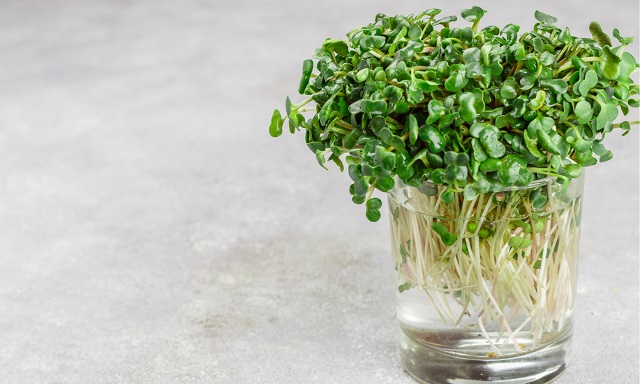
How to grow microgreens?
Growing microgreens is not as difficult as crops in fields and hence urban growers can grow them indoor for their consumption. The setup cost is low for microgreens crops and the growing cycle is super quick. Harvest and consume your microgreens within a couple of weeks.
Microgreens can thrive on a small scale. Those interested in growing their microgreens can do so following these steps:
1) Scatter seeds over an inch of potting soil in a planter dish or tray. Spread another thin layer of soil to cover the seeds.
2) Make sure to moisturize the soil with water and keep it near the source of sunlight.
3) Keep the moisture level maintained in the soil to help the seeds germinate.
These microgreens you have grown would be ready to harvest in 2-3 weeks.
Note- Cut them above the soil line and use after thorough rinsing.
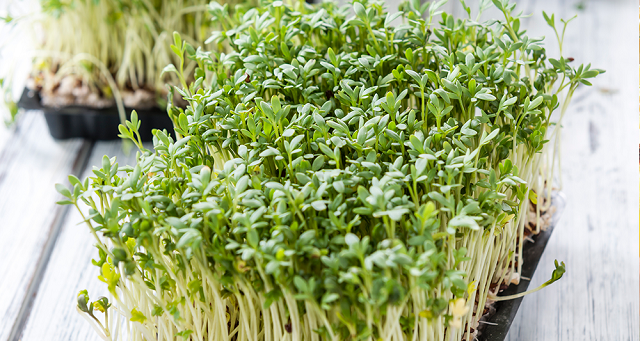
Precautions needed with microgreens
If you are buying microgreens from a grocery store:
1) Make sure that it comes from a good brand or reputable supplier.
2) Check the sell-by date.
3) Keep them in the refrigerator at a maximum of 5 degrees Celsius.
4) Consume them within 10 days.
If you are growing microgreens at home, the above-listed risks would be reduced but make sure:
1) Soil is clean
2) Use clean water for irrigation
3) As soon as microgreens are ready, harvest them and consume
4) While refrigerating , keep at not more than 5 degrees Celsius temperature and eat within 10 days.
, keep at not more than 5 degrees Celsius temperature and eat within 10 days.
If you are growing them outdoors in a garden
1) Make sure they are under shade.
2) Being fragile seedlings protect from extreme weather and drying winds.
Hurray! Make fresh and nutritious herbs reach everyday meals with microgreens now.
updates?
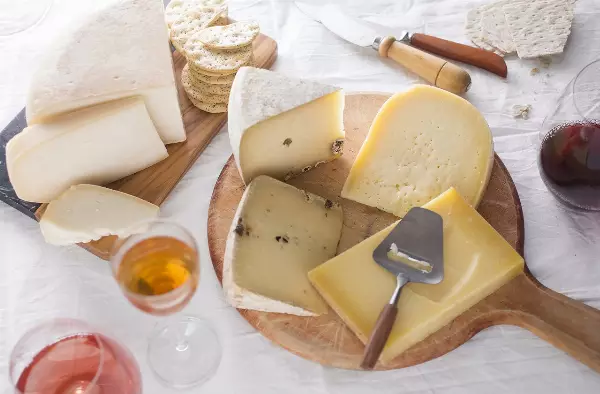


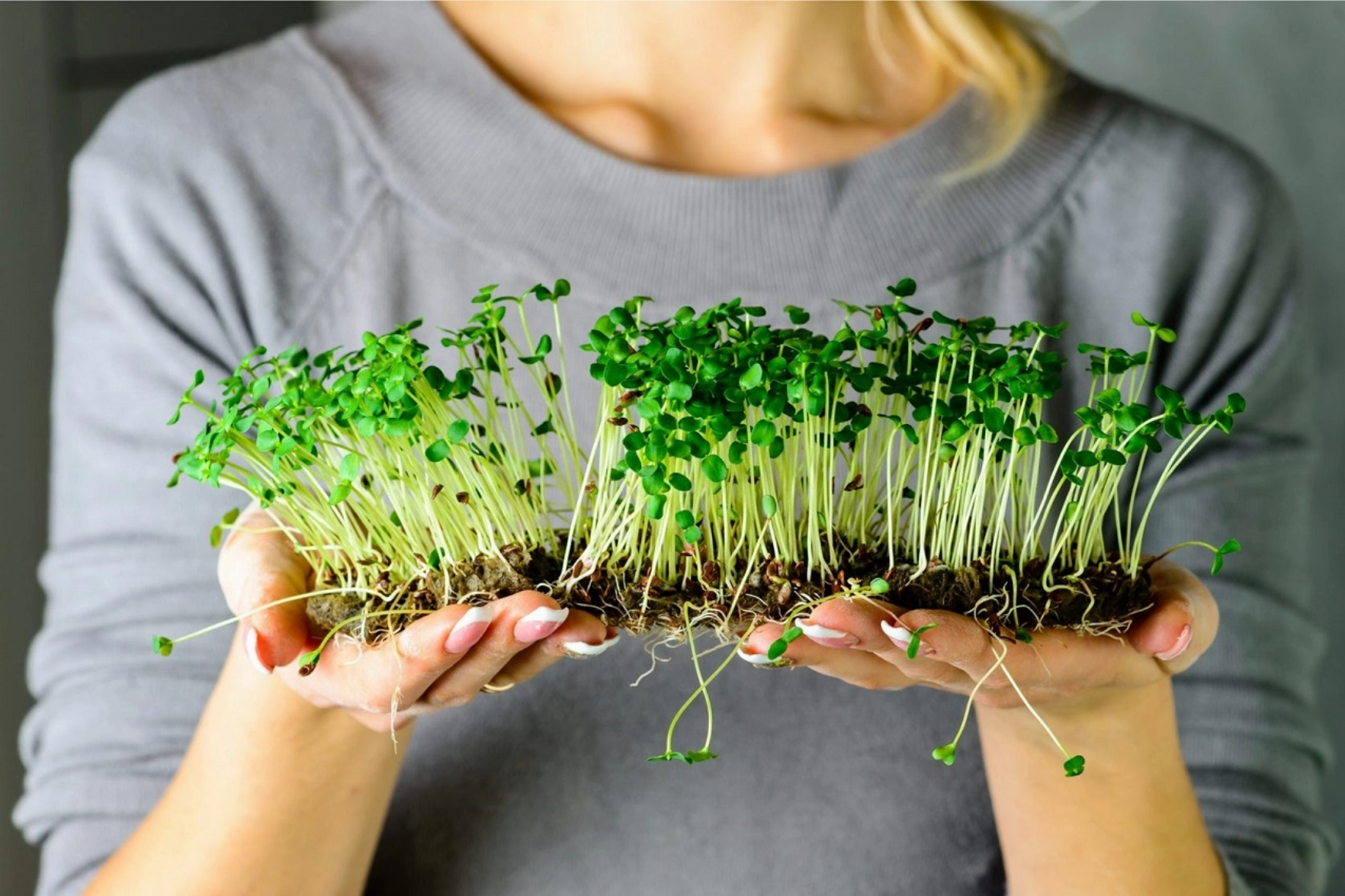
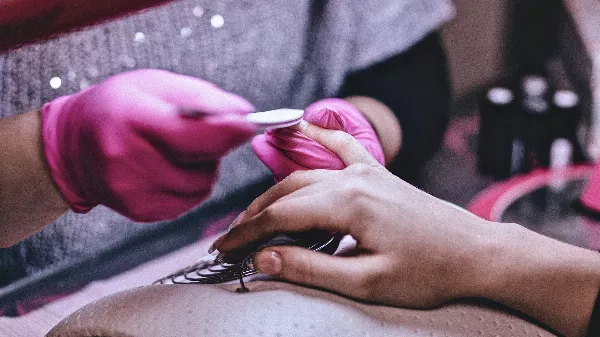

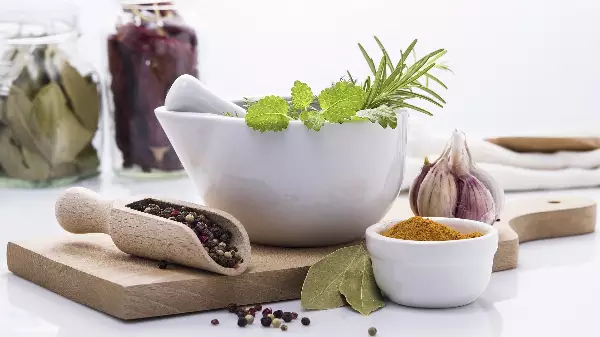



0